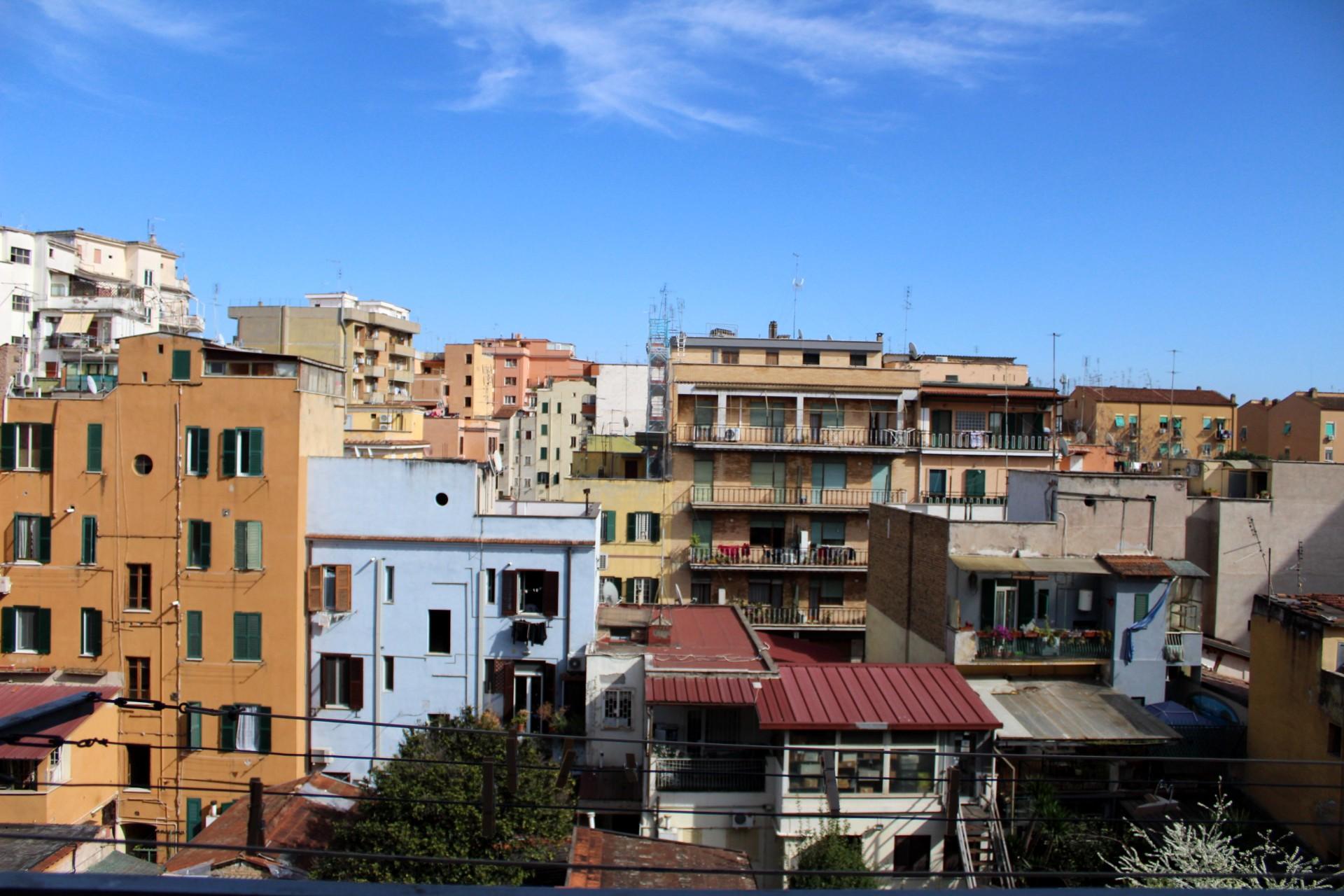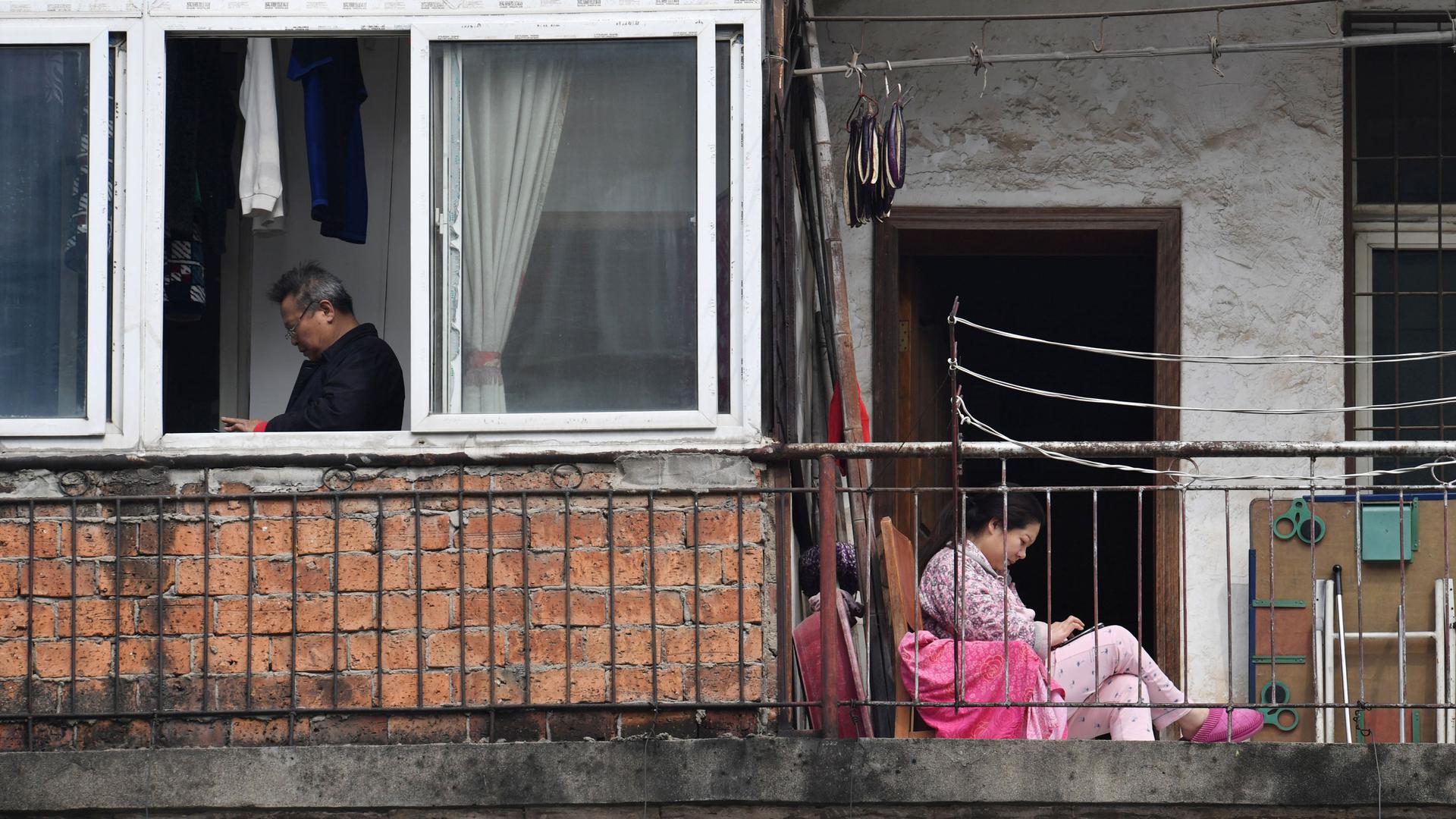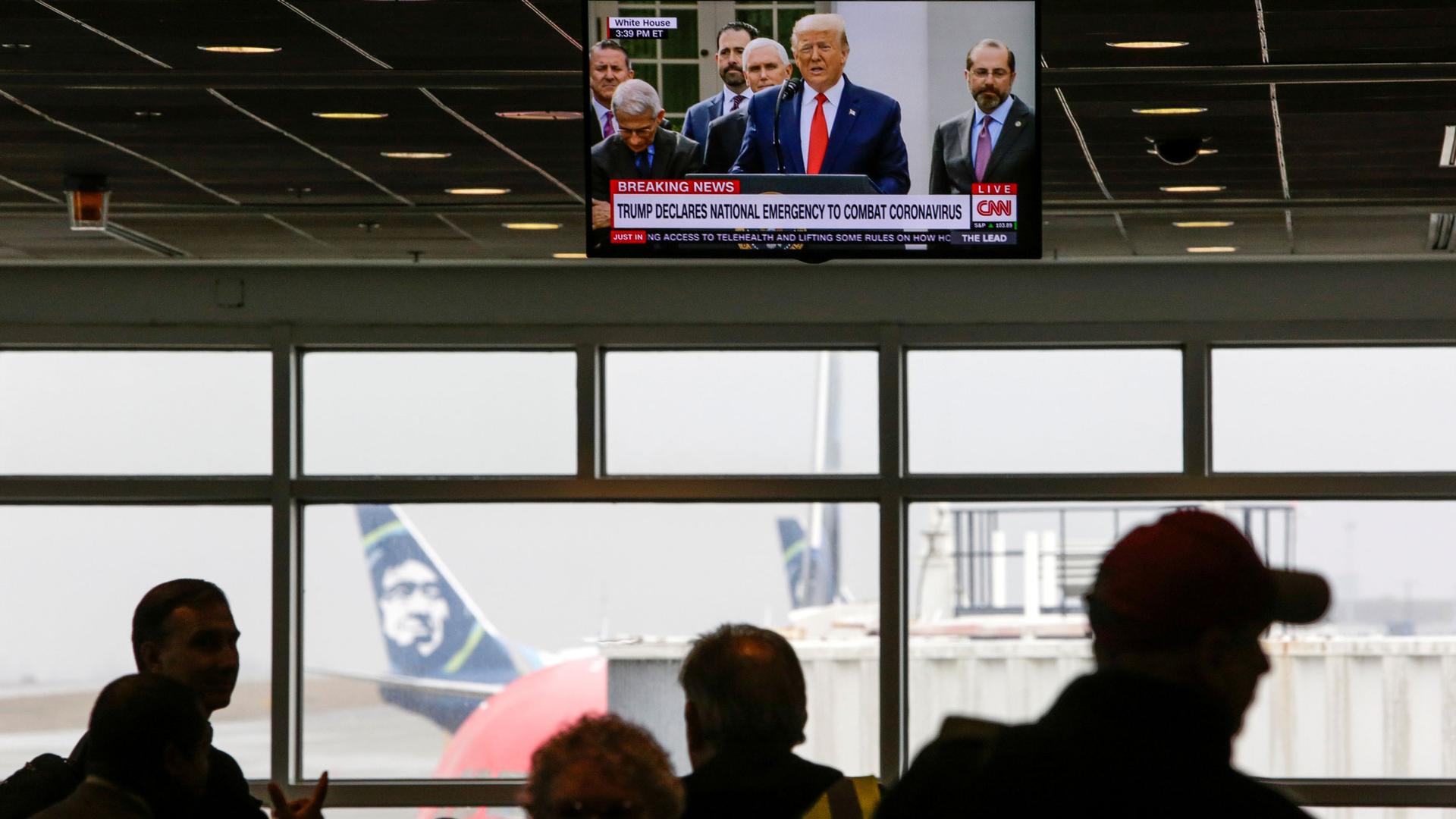Global coronavirus cases surpass those in China; Deportations could accelarate COVID-19 spread; Living under lockdown in the Eternal City
Travelers watch as US President Donald Trump is pictured on a television at Seattle-Tacoma International Airport as he declares a national emergency over the coronavirus, March 13, 2020.
Top of The World — our morning news round up written by editors at The World. Subscribe here.
Borders around the world are closing as governments desperately try to halt the spread of the coronavirus, but a backlog of testing at US airports may have put travelers at risk. There are now more than 87,000 cases outside of China; in China, where the virus was first identified, infections stand at nearly 81,000.
The CDC has advised against gatherings of more than 50 people, and Washington Gov. Jay Inslee, head of the state with the most US deaths, has temporarily shut down restaurants and recreational facilities. What are the rules — and ethics — of social distancing?
And the US Federal Reserve implemented some of the most agressive policies to limit the economic impact of COVID-19. It harkens back to the measures taken in 2008 finanicial crisis — but at a much faster rate.
More: As coronavirus deepens inequality, inequality worsens its spread
And: 179 countries have paid sick leave. Not the US.
Deportations could accelarate COVID-19 spread
Migrant deportations from the US and Mexico could be accelerating the growth of coronavirus cases in Central America. Three people who landed in Honduras after being deported from the US arrived with signs of the virus.
And there are concerns that Syria might face a “catastrophic” outbreak of the virus, with limited ability to fight COVID-19 in the midst of a nine-year war that has ravaged the country’s health care system.
And: No soap, little water, and no way out: Refugee camps brace for coronavirus
Biden and Sanders debate with no live audience
An anticipated debate between the top two Democratic presidential candidates took place Sunday with no live audience, 2,000 miles away from its originally scheduled location in Arizona — and with no hand shaking. The unprecedented pandemic took center stage as former Vice President Joe Biden and Sen. Bernie Sanders addressed the situation from their respective perspectives of tackling crises with responsive action vs. fixing the structural inequalities exacerbating crises.
“The two candidates may have stood at a greater distance from each other than they normally would, but somehow they were closer together. Even during the debate’s bitterest exchanges, I never got the sense that either of them was really and truly intent on savaging the other,” writes New York Times columnist Frank Bruni.
More: 4 winners and 2 losers from the March Democratic debate
And: Afraid of coronavirus? That might say something about your politics.
Lebanon’s ‘two crises’: coronavirus and financial collapse
Lebanon faces a unique problem in the midst of the pandemic. Almost everything Lebanon consumes is imported — and COVID-19 has struck as Lebanon slides deeper into a dire financial crisis brought on by government corruption and mismanagement.
Since October, protesters have been in the streets demanding a new government and an end to the country’s sectarian political system.
The Lebanese lira has lost around 40% of its value against the US dollar in recent months. That means everything is going up in price, especially imported goods — which comprises most food, medicine and medical supplies.
Living under lockdown in the Eternal City

Megan Iacobini de Fazio is freelance journalist for The World in Italy. She shared her reflections with us on the country’s coronavirus lockdown:
I live in Torpignattara, a lively, multicultural neighborhood in Rome, and for the past handful of days, I have been living in semi-quarantine, like 60 million other Italians. It feels like weeks already.
As experts warn that other countries days behind Italy, I feel like I’m watching history repeat itself: First come the memes, the jokes, the ironic crates of Corona beer. Then comes the fear, the panic-buying, the masks. Finally, as the number of victims soars, all that is left is a feeling of deep sadness.
There is a lot of uncertainty about the future, but there is no doubt that this will have a long-lasting impact on the way we live our lives.
Morning meme
A balcony rendition of Rigoletto’s “La donna è mobile.”
In case you missed it
Listen: Coronavirus puts spotlight on global sick leave policies

The latest on the global impacts of the coronavirus outbreak, including a look at sick leave policies around the world, the reaction in Lebanon and the impact on businesses in India. And, thousands of migrants and refugees are trying to leave Turkey to get into Greece. The World’s Lydia Emmanouilidou reports on a group of migrants that landed in Lesbos, including one Syrian stuck on a beach. Also, a wide-ranging discussion with Bassem Youssef, the “Jon Stewart of Egypt,” including discussing the coronavirus in Egypt and the recent death of former president Hosni Mubarak.
Don’t forget to subscribe to The World’s Latest Edition podcast using your favorite podcast player: RadioPublic, Apple Podcasts, Stitcher, Soundcloud, RSS.
